Jechiel Jagoda
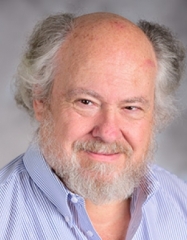
Combustion

Combustion

Wind
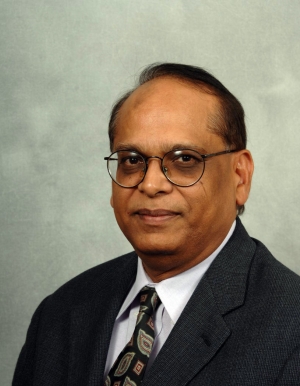
Dr. J.V.R. Prasad is a professor in the School of Daniel Guggenheim School of Aerospace Engineering at the Georgia Institute of Technology working in the area of flight mechanics and control. He received his B.Tech degree from the Indian Institute of Technology, Madras, India and his M.S and Ph.D. degrees from the Georgia Institute of Technology, Atlanta, USA. He is currently a co-principal investigator and the associate director for the US Army, Navy and NASA sponsored Vertical Lift Rotorcraft Center of Excellence (VLRCOE) program at Georgia Tech. He has extensive research and design experience in rotorcraft system modeling and control, propulsion system modeling and control, and autonomous air vehicle modeling and control. He published parts of four books, sixty refereed journal papers, more than 250 conference papers and 80 research project reports. He has 18 invention disclosures and five patents to his credit. He is a recipient of the 2009 Melville Medal award from the American Society of Mechanical Engineers (ASME) and the 2015 Aero Lion Technologies Outstanding Journal Paper award from the International Journal of Unmanned Systems. He served as the editor-in-chief of the Journal of the American Helicopter Society (AHS), chair of the Handling Qualities and UAV Tech Committees of the AHS, and as member and secretary of the Atmospheric. Flight Mechanics Technical Committee of the American Institute of Aeronautics and Astronautics (AIAA). He currently serves as a member of the editorial board for the International Journal on Mathematical Modeling and Simulation and the advisory board for the International Journal of Unmanned Systems. He is a Fellow of the AIAA, a Technical Fellow of the AHS and a member of the ASME.
Flight Mechanics & Controls

E. Glenn Lightsey is the John W. Young Chair Professor in the Daniel Guggenheim School of Aerospace Engineering at Georgia Tech. He currently serves on the executive committee for the Space Research Initiative at Georgia Tech. Previously, he was the director of the Space Systems Design Lab from 2016-2023 and Center for Space Technology And Research at Georgia Tech from 2019-2023.
Lightsey’s research program focuses on the technology of small satellites, including: guidance, navigation, and control systems; attitude determination and control; formation flying, satellite swarms, and cooperative control; proximity operations and unmanned spacecraft rendezvous; space based Global Positioning System receivers; radionavigation; propulsion; satellite operations; and space systems engineering. His group has built and operated several spacecraft for government sponsors.
Lightsey has co-authored more than 180 technical articles and publications, including four book chapters. He is an AIAA Fellow and a Founding Member of the AIAA Small Satellite Technical Committee. He is Associate Editor-in-Chief of the Journal of Small Satellites. In the past he served as Associate Editor of the AIAA Journal of Guidance, Control, and Dynamics and Associate Editor of the AIAA Journal of Spacecraft and Rockets. Lightsey was previously employed at the University of Texas at Austin and NASA’s Goddard Space Flight Center.
Small Satellites, Guidance and Control, and Spacecraft Technology.

Dimitri Mavris is a Regents’ Professor, Boeing Professor of Advanced Aerospace Systems Analysis, and an S.P. Langley Distinguished Professor. He also serves as the director of the Aerospace Systems Design Laboratory (ASDL) and executive director of the Professional Master’s in Applied Systems Engineering (PMASE). Dr. Mavris received his B.S., M.S., and Ph.D. in aerospace engineering from the Georgia Institute of Technology. His primary areas of research interest include: advanced design methods, aircraft conceptual and preliminary design, air-breathing propulsion design, multi-disciplinary analysis, design and optimization, system of systems, and non-deterministic design theory. Dr. Mavris has actively pursued closer ties between the academic and industrial communities in order to foster research opportunities and tailor the aerospace engineering curriculum towards meeting the future needs of the US aerospace industry. He has also co-authored with his students in excess of 1,000 publications. During his tenure at Georgia Tech, Dr. Mavris has chaired and served in several Technical and Program Committees for the American Institute of Aeronautics and Astronautics (AIAA) and served on the AIAA Board of Directors and Institute Development Committee. He is the President of the International Council of the Aeronautical Sciences (ICAS). He is the Georgia Tech technical point of contact for the FAA Center of Excellence for Alternative Jet Fuels & Environment (ASCENT), the Georgia Tech site director for the FAA Partnership to Enhance General Aviation Safety, Accessibility, and Sustainability (PEGASAS), and the principal investigator for the Airbus/Georgia Tech Center for MBSE-enabled Overall Aircraft Design and the Siemens Center of Excellence for Simulation and Digital Twin.
System Design & Optimization
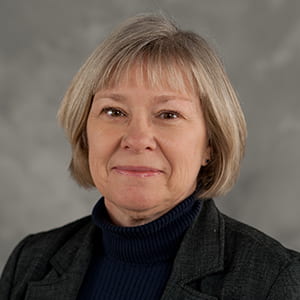
Marilyn Smith is a Professor in the School of Daniel Guggenheim School of Aerospace Engineering at the Georgia Institute of Technology. She is director of Georgia Tech's Vertical Lift Research Center of Excellence (VLRCOE), where she leads a seven-university team of experts in vertical lift research for the U.S. Army, U.S. Navy and NASA. She has partnered with the Georgia Tech Research Institute (GTRI) to successfully win multiple research funding mechanisms for both organizations that total more than $200 million dollars. As the director of the AE School's Computational Nonlinear Computational Aeroelasticity Lab, Prof. Smith leads an internationally recognized and award-winning research team in the areas of unsteady aerodynamics and computational aeroelasticity using Computational Fluid Dynamics (CFD) across rotary-wing, fixed wing and launch vehicles, as well as sustainable energy. As a member of the NASA FUN3D development team, Prof. Smith contributes to state-of-the-art unstructured algorithm development, in particular for overset, moving frames. As an affiliate of the Aerospace Systems Design Lab (ASDL), she helps to integrate high performance computing with the design process. Prof. Smith is the author or co-author of more than 200 technical publications, and her research products are in active use by the US Government and other organizations, including the Drone Racing League. She is active internationally on three NATO AVT Panels investigating nonlinear gusts behaviors on UAVs and collaboration of experimental/computational aerodynamics. She is on Board of Directors of the Vertical Lift Consortium (VLC) and the Vertical Flight Society (VFS). She is also the Deputy Technical Director for Aeromechanics for the VFS. Prof. Smith has demonstrated her leadership as ARO Dynamic Stall Workshop Chair (2019); 70th AHS Annual Forum Technical Chairperson (2014); 69th AHS Annual Forum Technical Deputy Chairperson (2013); and 2014 Overset Grid Symposium (OGS) Chairperson. She was a member on the first International Aeroelastic Prediction Workshop Organizing Committee and is a member of the OGS organizing committee. Prof. Smith has been a guest expert in aviation for National Geographic, PBS, and NPR, as well as local television and numerous publications.
aeroelasticity; aerodynamics; computational fluid dynamics

Vigor Yang earned his Ph.D. from the California Institute of Technology in 1984. After serving for one year as a research fellow in Jet Propulsion at Caltech, he joined the Pennsylvania State University in August 1985, becoming the John L. and Genevieve H. McCain Chair in Engineering in 2006. In 2009, he began his tenure as the William R.T. Oakes Professor Chair at the Daniel Guggenheim School of Aerospace Engineering at the Georgia Tech. He retired from the chair position and returned to teaching and research in August of 2018
Yang’s research encompasses a wide spectrum of topics, including (1) data-enabled design and data science; (2) combustion dynamics in propulsion and power-generation systems;(3) multi-fidelity modeling and simulations of fluid flows and combustion; (4) combustion of energetic materials; (5) high-pressure transport phenomena, thermodynamics and combustion, and (6) nano technologies for propulsion and energetic applications. He has established, as the principal or co-principal investigator, more than 70 research projects, including nine (9) DoD-MURI projects. He has published 10 comprehensive volumes and numerous technical papers on combustion, propulsion, energetics, and data science. He was the recipient of the Air-Breathing Propulsion Award (2005), the Pendray Aerospace Literature Award (2008), the Propellants and Combustion Award (2009), and the von Karman Lectureship in Astronautics Award (2016) from the American Institute of Aeronautics and Astronautics (AIAA); the Worcester Reed Warner Medal (2014) from the American Society of Mechanical Engineers (ASME); and the Lifetime Achievement Award (2014) from the Joint Army, Navy, NASA, and Air Force (JANNAF) Interagency Propulsion Committee.
Yang was the editor-in-chief of the AIAA Journal of Propulsion and Power (2001-2009) and the JANNAF Journal of Propulsion and Energetics (2009-2012). He is currently a co-editor of the Aerospace Book Series of the Cambridge University Press (2010-). He serves, or has served, on a large number of steering committees and review/advisory boards for government agencies and universities in the U.S. and abroad. A member of the U.S. National Academy of Engineering and an academician of Academia Sinica, Dr. Yang is a fellow of the AIAA, ASME, and Royal Aeronautical Society (RAeS).
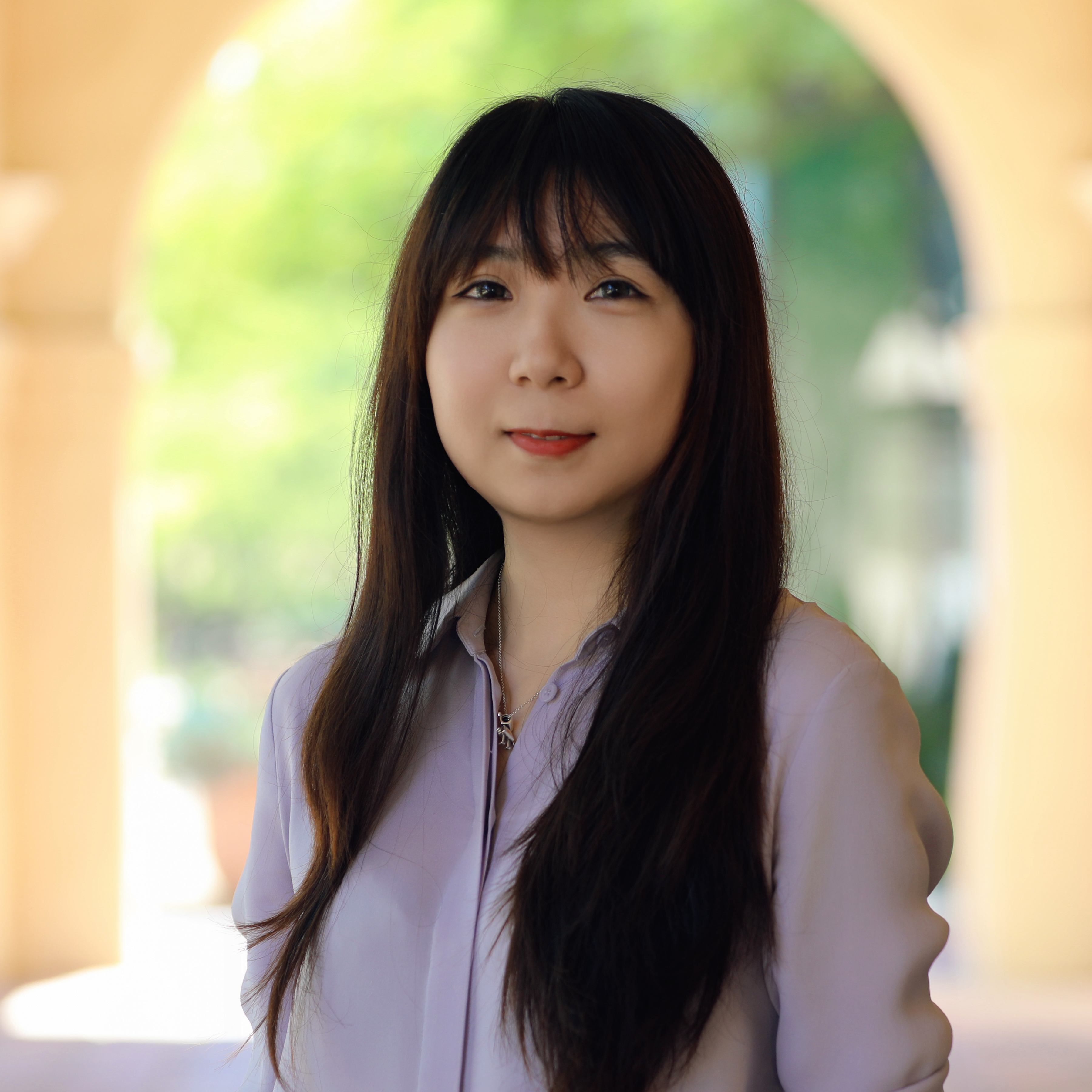
Lu Gan joined the Daniel Guggenheim School of Aerospace Engineering at the Georgia Institute of Technology as an Assistant Professor in January 2024. She leads the Lu's Navigation and Autonomous Robotics (Lunar) Lab at Georgia Tech, and is on the core faculty of the Institute for Robotics and Intelligent Machines. Her research interests include robot perception, robot learning, and autonomous navigation. Her group explores the use of computer vision, machine learning, estimation, probabilistic inference, kinematics and dynamics to develop autonomous systems in ground, air, and space applications.
She holds a B.S. in Automation from the University of Electronic Science and Technology of China, an M.S. in Control Engineering from Beihang University, and received her M.S. and Ph.D. in Robotics from the University of Michigan, Ann Arbor. Before joining Georgia Tech, she had a two-year appointment as a Postdoctoral Scholar at the Graduate Aerospace Laboratories of the California Institute of Technology and the Center for Autonomous Systems and Technologies at Caltech.
Computer VisionPerception & NavigationRobot AutonomyFlight Mechanics & ControlsHuman-Robot Interaction
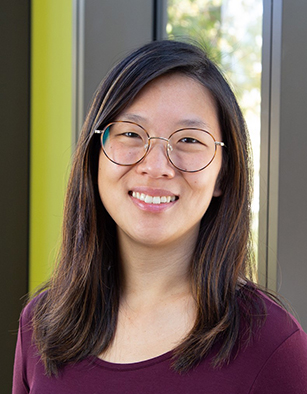
Elizabeth Qian joined the Daniel Guggenheim School in November 2022. She holds a joint appointment at Georgia Tech as Assistant Professor in the Schools of Aerospace Engineering and Computational Science and Engineering. Her interdisciplinary research develops new computational methods to enable engineering design and decision-making for complex systems. Her specialties are in developing efficient surrogate models through model reduction and scientific machine learning, and in developing multifidelity approaches to accelerate expensive computations in uncertainty quantification, optimization, and control.
Elizabeth previously held a postdoctoral appointment as von Karman Instructor at Caltech in the Department of Computing + Mathematical Sciences. She has been the recipient of many awards, including a Caltech-wide award for teaching bestowed by the undergraduate student body, the 2020 SIAM Student Paper Prize, the Fannie and John Hertz Foundation Fellowship, and the NSF Graduate Research Fellowship. She is also an alumna of the U.S. Fulbright student program. She earned her PhD, SM, and SB degrees from the MIT Department of Aeronautics & Astronautics.
Flight Mechanics & Controls Propulsion & Combustion Systems Design & OptimizationLarge-Scale Computations, Data, and Analytics

Christos Athanasiou is an Assistant Professor at Georgia Tech's Daniel Guggenheim School of Aerospace Engineering, leading the Daedalus Lab. The lab's mission is to advance science and technology in biological and man-made systems for tackling grand social and environmental challenges with a major focus on energy storage, environmental remediation, and sustainable space exploration. Christos holds a Ph.D. in Photonics from EPFL. Initially, he carried out postdoctoral research at Brown University's School of Engineering, and later jointly at Brown University and MIT Media Lab.
Disciplines:Structural Mechanics & MaterialsAE Multidisciplinary Research Areas:Large-Scale Computations, Data, and AnalyticsMechanics of Multifunctional Structures and MaterialsSpace Exploration and Earth MonitoringSustainable Transportation and Energy Systems